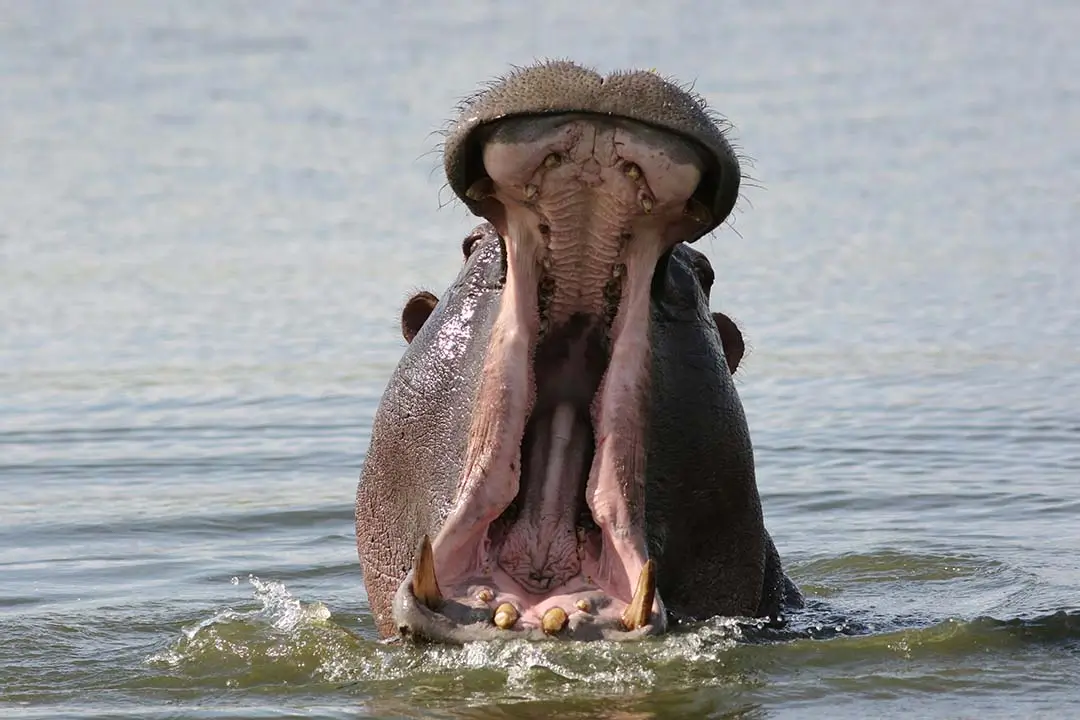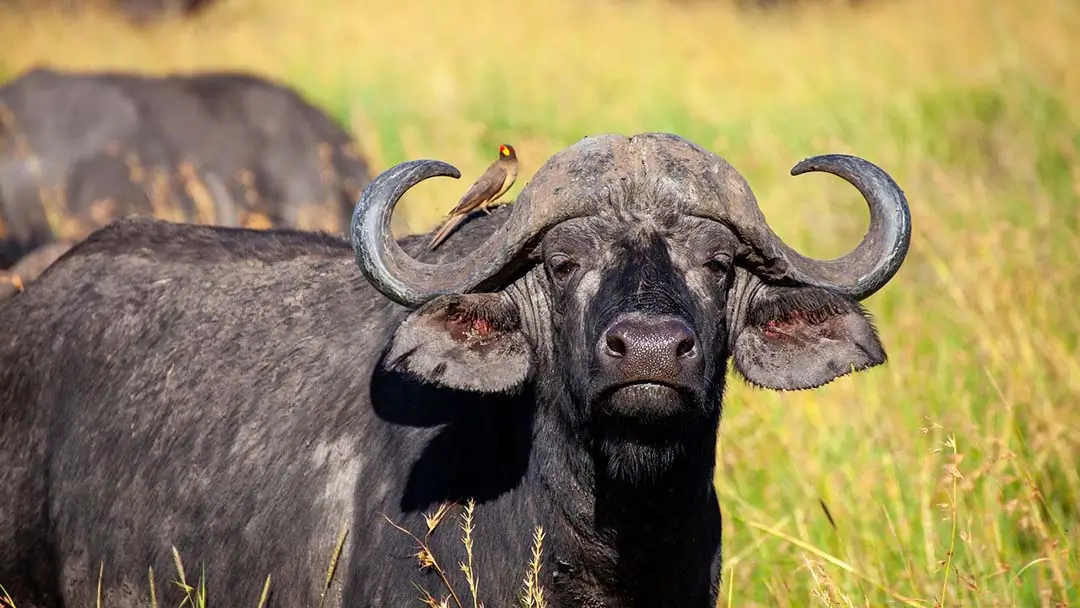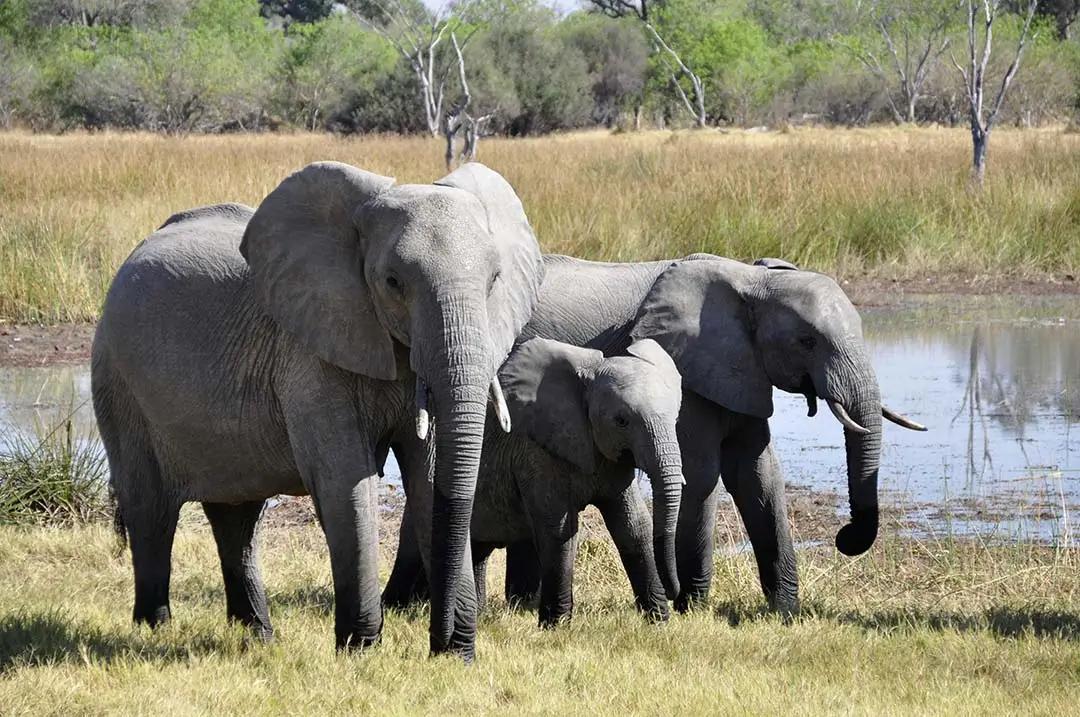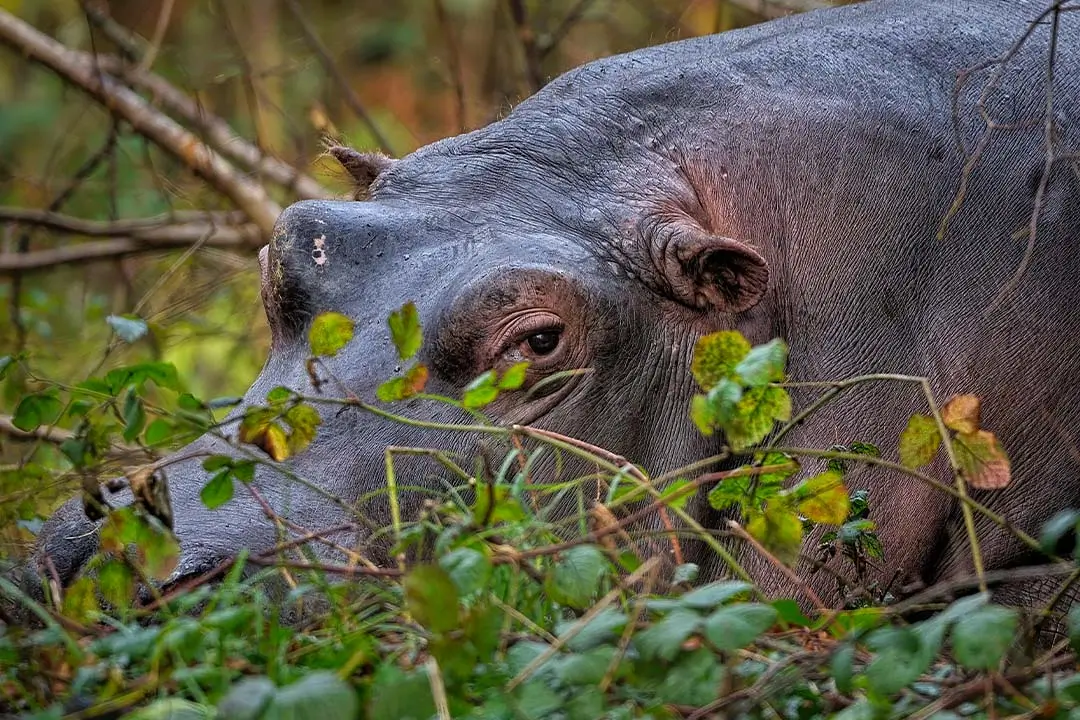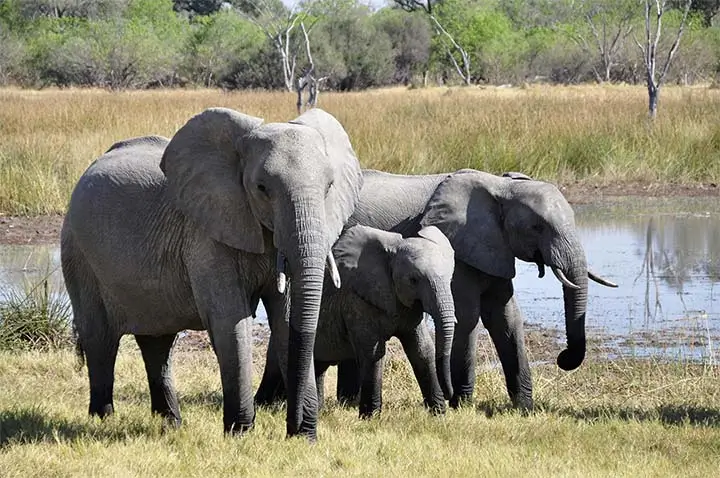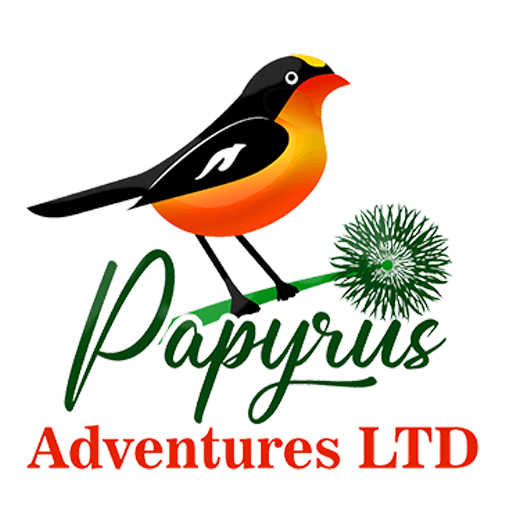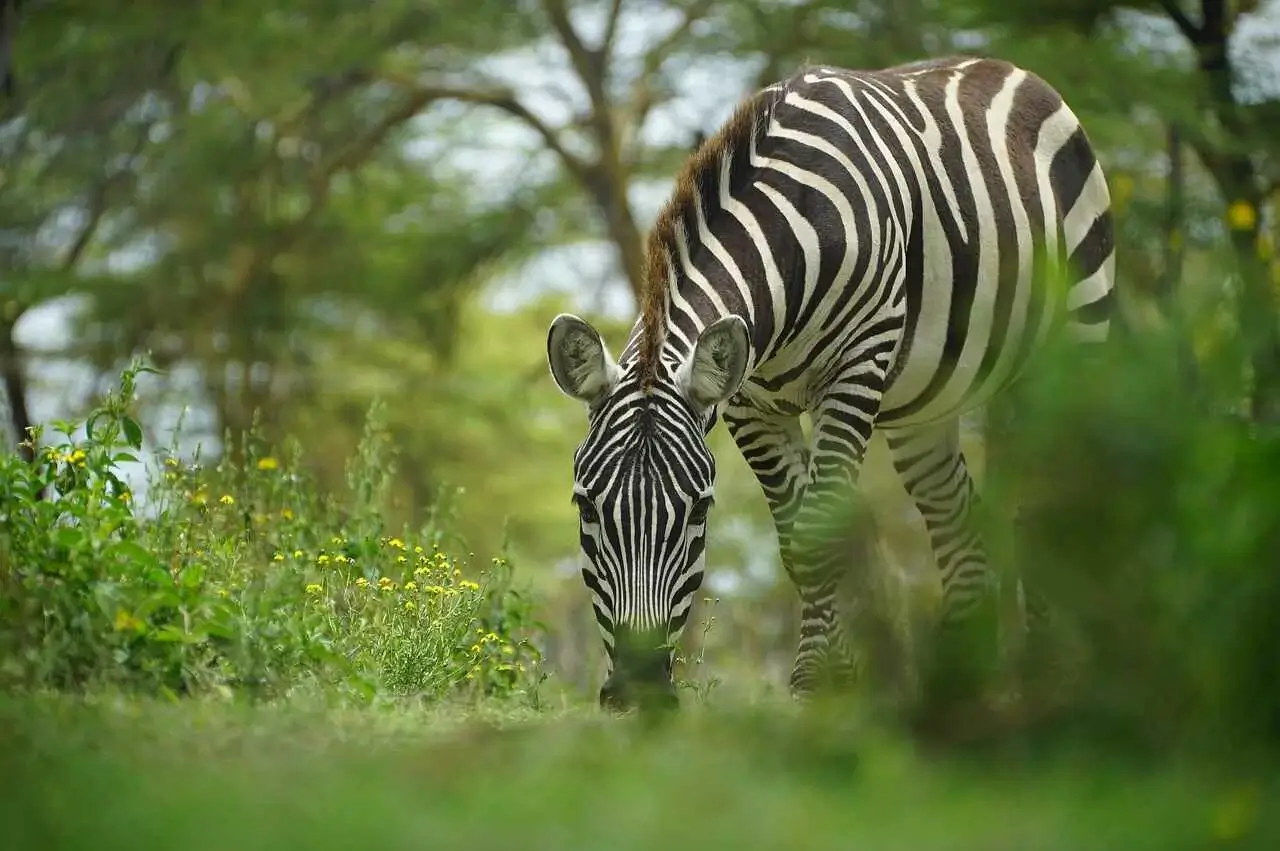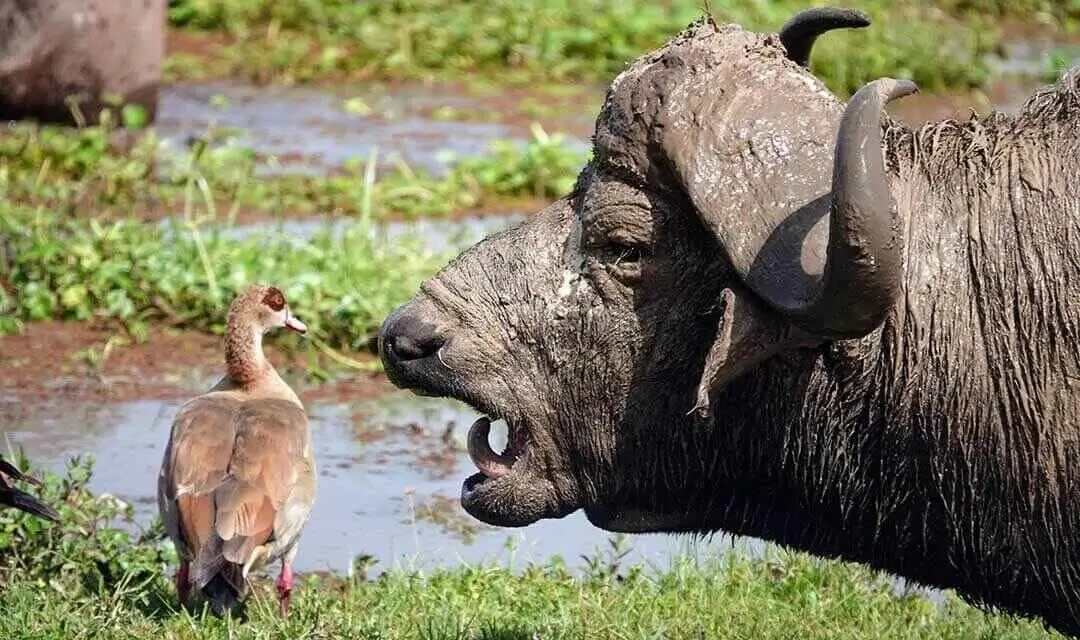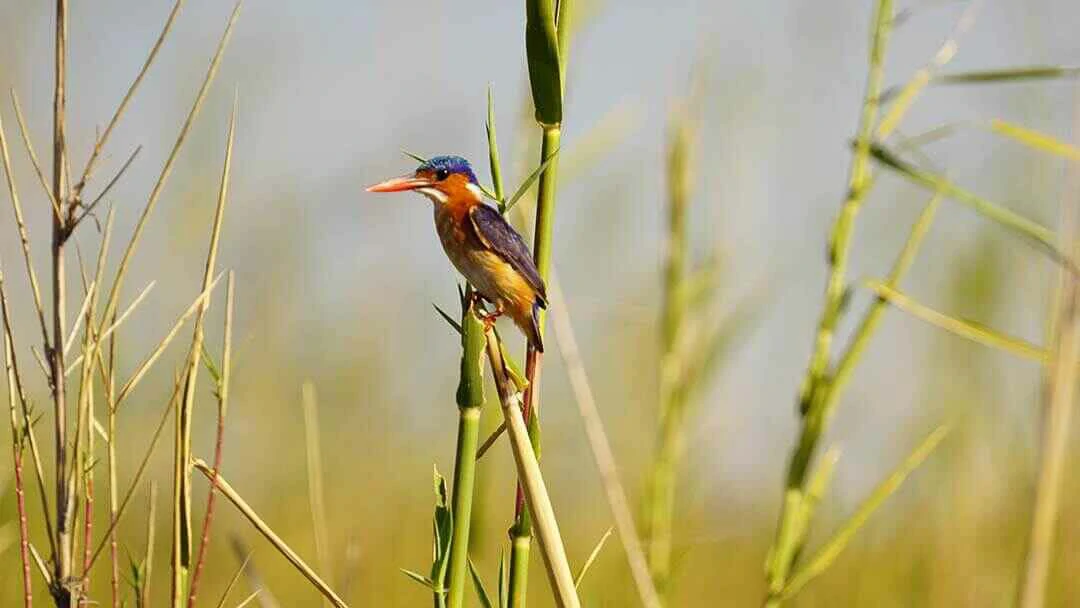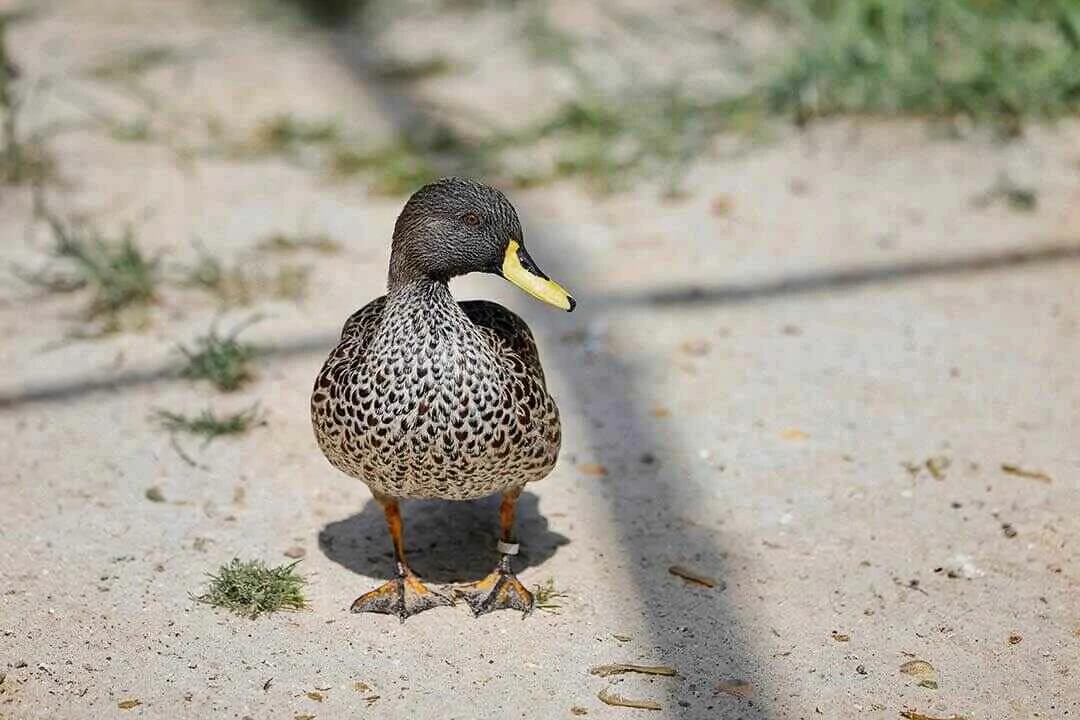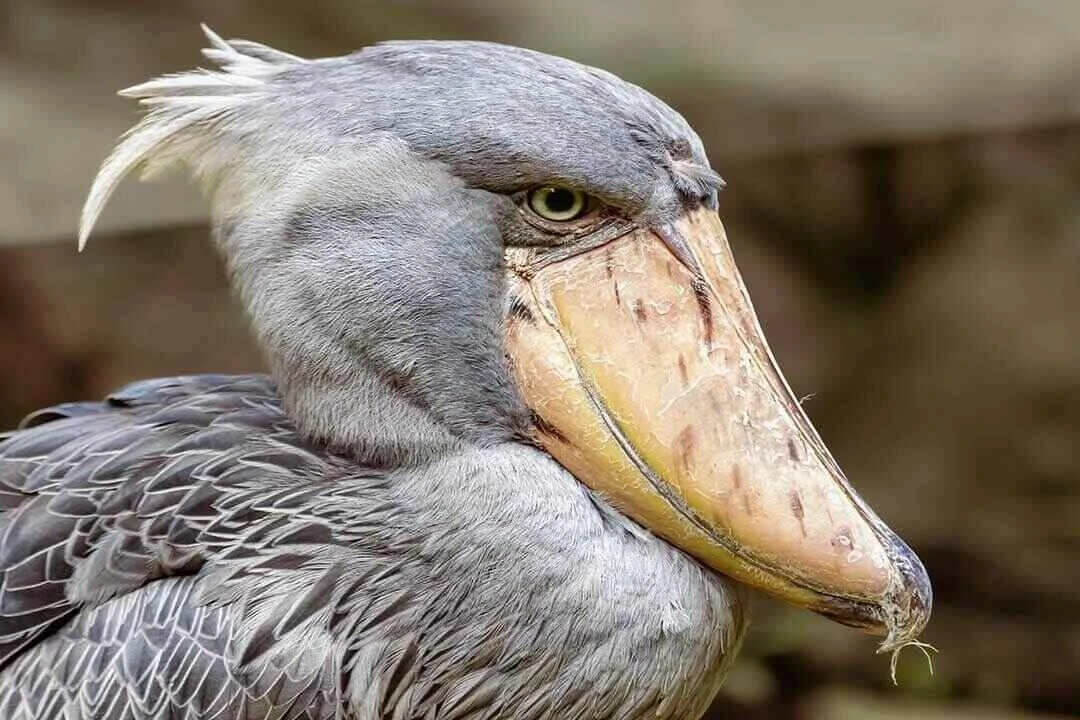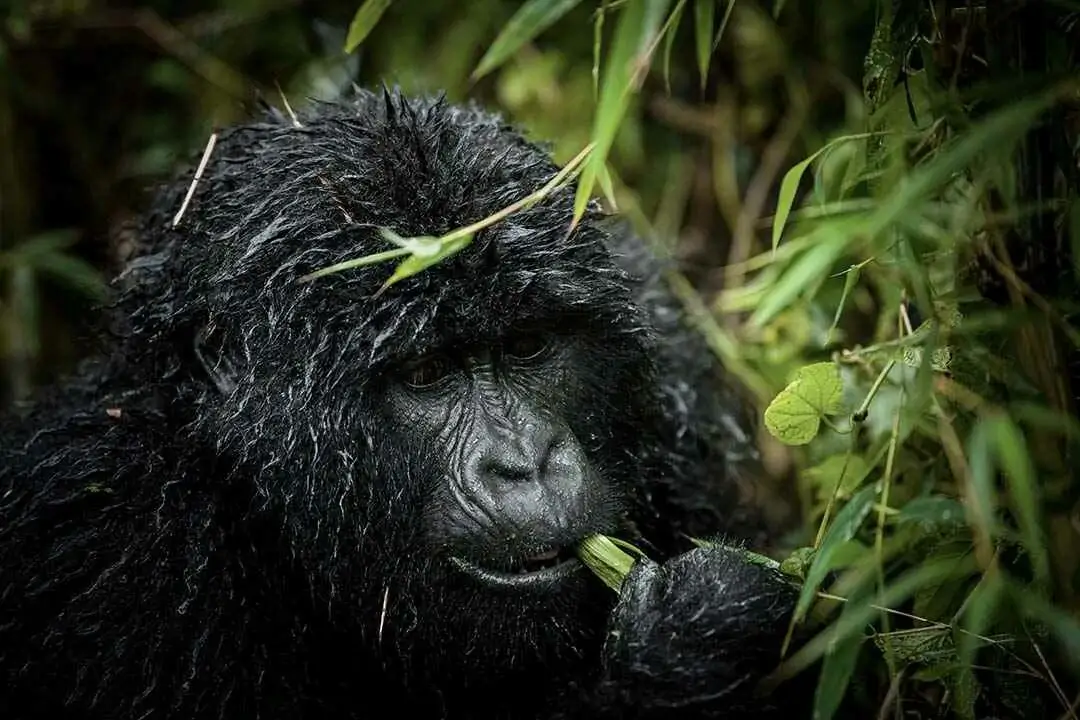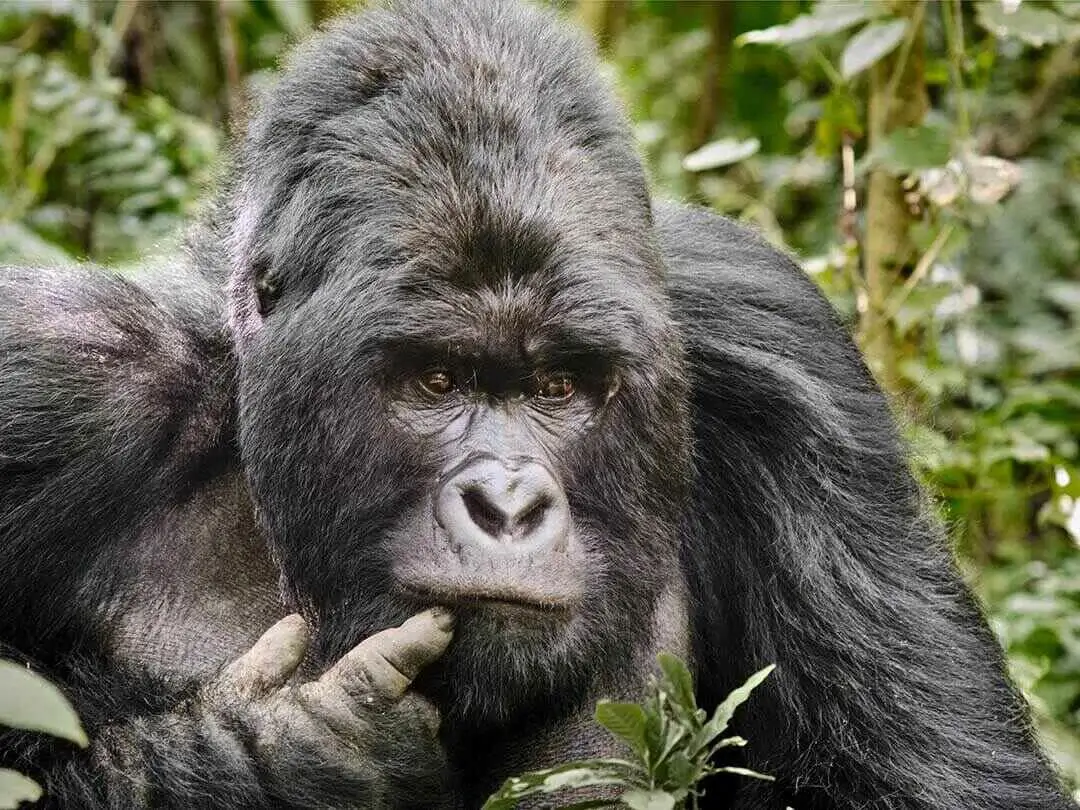Wildlife in Wonga Wongue National Park
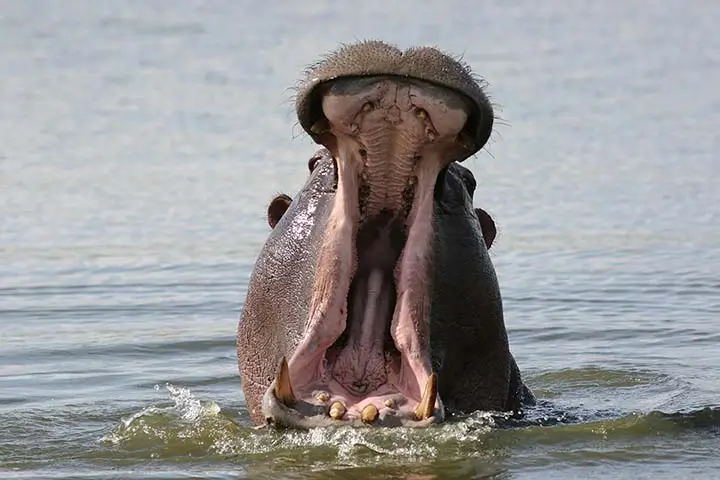
Hippopotamus
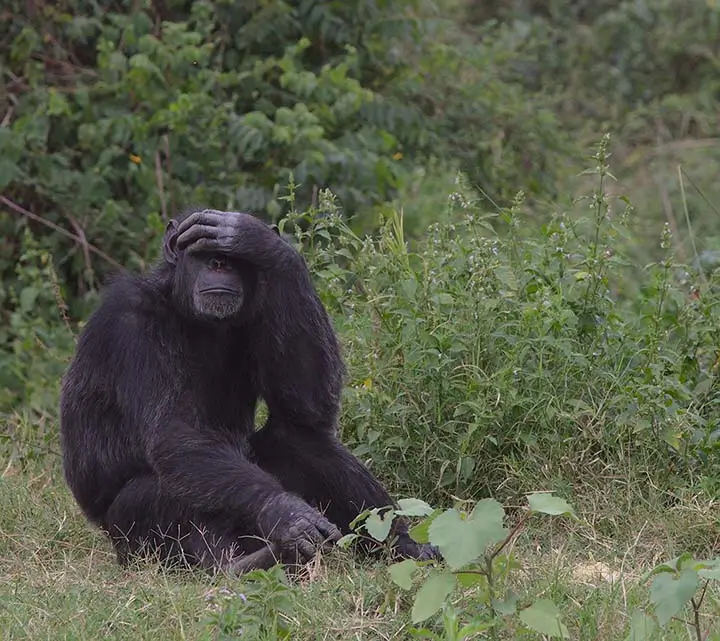
Chimpanzee
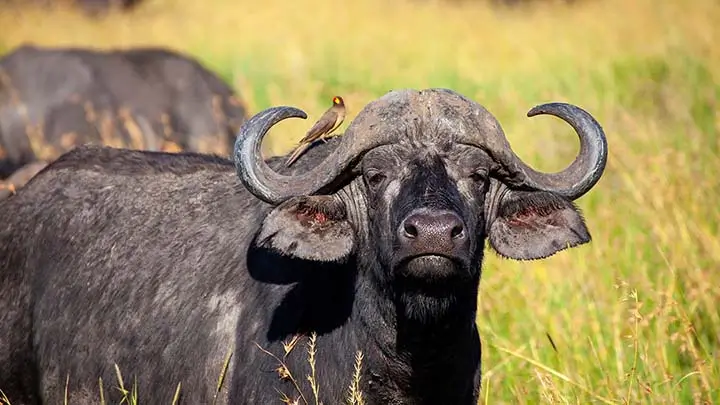
Buffalo
Wonga Wongué Presidential Reserve (4281 km2 ), formerly commercially logged in the 1990s, was first declared a National Park in 1967, and then gazetted as a Presidential Reserve in 1972. It became a RAMSAR site in 1986. It lies north of the Ogooué River and is in the Estuaire, Ogooué-Maritime and Moyen Ogooué provinces in southwest Gabon, along and contiguous with the Atlantic coast. The relief is a sandy plateau rising to just under 300m, with several mostly inactive canyons similar to those in the Bateké National Park far to the East. It is drained to the south by tributaries of the Ogooué River, and to the north by those of the Komo River. About 70% of the Reserve is lowland forest, dominated by Aucoumeaklaineana and Sacoglottisgabonensis. The Wonga Wongue Reserve lies near Libreville and Port Gentil on the northwest coast of the country. The Wonga-Wongue presidential reserve is an amazing example for its animals and sceneries.
Vegetation and landscape
The vegetation gradient starts at the west (at the Atlantic beach) through to the eastern limits roughly 60 to 80 km inland. Large savanna patches are found inland throughout the Reserve, embedded within the forest, the largest of which is roughly 50 x 20 km. The climate is transitional equatorial with the main dry season lasting from July to September. Mean annual rainfall is 2000 to 2400 mm. Mean annual temperature is 25 to 26 °C. Wonga-Wongué (also known as Wongha-Wonghé) is a vast coastal region composed of plains, rolling hills, and plateaus intersected by numerous small coastal rivers, marshes, and marshes. There are also impressive erosive amphitheaters and cliffs. The area includes a wildlife sanctuary and two hunting concessions. The vegetation varies from humid tropical forest to stunted forests, savannas and thickets. The bio-diverse area contains a range of landscapes, including lush green savannas and dense jungle. Dunes in the reserve reach as high as 300 meters, and erosion has carved out natural amphitheaters of red and white clay.
Biodiversity
This high diversity present in the Wonga-Wongué Presidential Reserve is based on a single monophyletic group of species of the subgenus Chromaphyosemion. There are at least six different species in this small area (4300 km2 , approximately 80 km north to south and west to east).The Wonga-Wongué Presidential Reserve is composed of coastal hills, rising to 284 m. These hills are ancient coastal dunes covered with a savannah and forest mosaic. Today, these hills separate rivers that were probably in contact with each other when the sea level was much lower.
Mammals
The park supports notable mammals such as chimpanzee, gorilla, elephant, buffalo, and hippo, as well as a large number of waterfowl, with Pelecanusonocrotalus being dominant. Any type of land use is prohibited due to the sites status as a Presidential Reserve, giving it very important conservation potential. Deforestation is taking place in the surrounding areas, but this does not yet pose a threat to the site. Tourism also takes place in the area, with the main activities being wildlife viewing and beach recreation.
It has a land size of 500 000 hectares. A large sand plateau with a softened hillside of dunes reaching heights of 200 - 300 meters, where all of Gagon's wildlife may be found. The Atlantic coast boasts exquisite beaches of fane white sand, Lake Eliwawanyé is located inside the reserve, and rivers and OuangoOgooué cross the valleys in the south. We may view breathtaking landscapes, natural amphitheatres - or cirques - that are uncommon in Central Africa, formed by erosion of white and red clay. A deep humid forest occupies almost two-thirds of the region, with the remainder made up of savanach, mangrove forest, and wetland vegetation. There are many elephants, buffalo, lowland gorillas, chimps, mangabey, colobus monkeys, panthers, sitatungas, antelope, red river pigs, and other birds on the reserve's perimeter, as well as turtles laying their eggs on the shore.
A protected area, the Wonga Wongue Presidential Reserve is also home to diverse species of animals. During the shooting of Survivor: Gabon, contestants and crew encountered elephants, a leopard, and a 12-foot python, though none of these encounters resulted in any harm to those involved in the production or to the animals. Antelopes, hippopotami, lowland gorillas, panthers, colobus monkeys, and red river hogs also live there, and turtles and various birds lay their eggs on the reserves white-sand beaches.
Climate
The climate in Gabon differs within two areas, the coast and the interior. The coast: On the coast, the north has the coolest climate. Here the daily average temperatures are around 28-30 °C. In July they can even drop to 26 °C. At night they are 22 to 24 °C. The rainy season lasts from September to May. Most of the precipitation falls in October with about 23 rainy days. In the south the climate becomes more volatile. Temperatures increase by about one to two degrees and the average rainfall days decrease.
Inland
The climate is in the north more stable. There the average daytime temperatures are around 27-30 °C all year round. At night they drop to around 20 °C. There are two rainy seasons, each with 15-20 rainy days per month. The first lasts from February to the end of June. The second, when it rains a little more, lasts from the beginning of September to the end of November. In the south, the average daytime temperatures are 26-29 °C, and here, too, it is coldest in July. At night the temperatures are between 18-23 °C, the coldest month is July. The rainy season lasts from September to March. November has the most rainfall with 17 rainy days.
Activitives at this park
Birding Watching
There is no comprehensive list of birds, but 340 species in the Crystal mountains region. Among the species endemic to Lower Guinea are the Cameroonian picatharte Picathartes oreas, Verreaux's Batis Batis minima, the forest swallow Hirundo fuliginosa and Rachel's malimbe Malimbus racheliae.
Boat Cruise
Lorem ipsum, dolor sit amet consectetur adipisicing elit. Magni consequatur quia ex, dolorum officia, earum consequuntur mollitia reprehenderit dolorem, fugiat voluptates adipisci itaque distinctio? Exercitationem, amet facilis. Accusamus, quas nisi!
Game Drive
Lorem ipsum, dolor sit amet consectetur adipisicing elit. Magni consequatur quia ex, dolorum officia, earum consequuntur mollitia reprehenderit dolorem, fugiat voluptates adipisci itaque distinctio? Exercitationem, amet facilis. Accusamus, quas nisi!
Nature Walks
Lorem ipsum, dolor sit amet consectetur adipisicing elit. Magni consequatur quia ex, dolorum officia, earum consequuntur mollitia reprehenderit dolorem, fugiat voluptates adipisci itaque distinctio? Exercitationem, amet facilis. Accusamus, quas nisi!
Location
Gabon
Size
500 000 hectares
Do You have any Questions?
Our Experts are ready to provide answers
Explore Out Top Tour Ideas
Travel With Us
When considering your next adventure, Papyrus Adventures stands out as the ideal travel companion, offering a comprehensive package of benefits that ensure an unparalleled experience.
Best Price Guaranteed
With our "Best Price Guaranteed" policy, you can rest assured that you are getting the most value for your investment.
Professional Safari Guides
Our commitment to excellence extends to our team of "Professional Safari Guides," who possess extensive knowledge and expertise, ensuring a journey filled with insightful and unforgettable moments.
Locally Owned Company
Papyrus Adventures is deeply rooted in the destinations we explore, allowing us to provide authentic and immersive experiences that showcase the rich cultures and landscapes of each location.
24-7 Customer Support
our "24-7 Customer Support" ensures that your needs are met around the clock, providing peace of mind and a safety net for any unforeseen circumstances.
